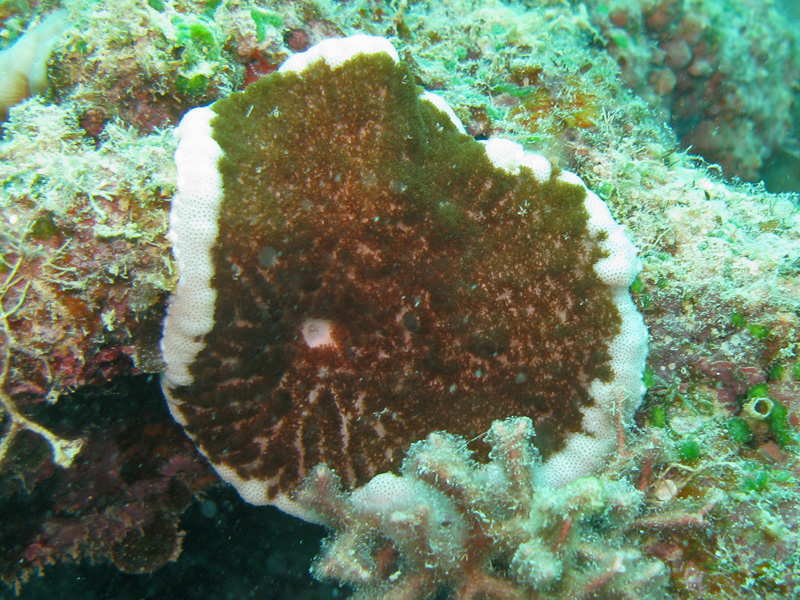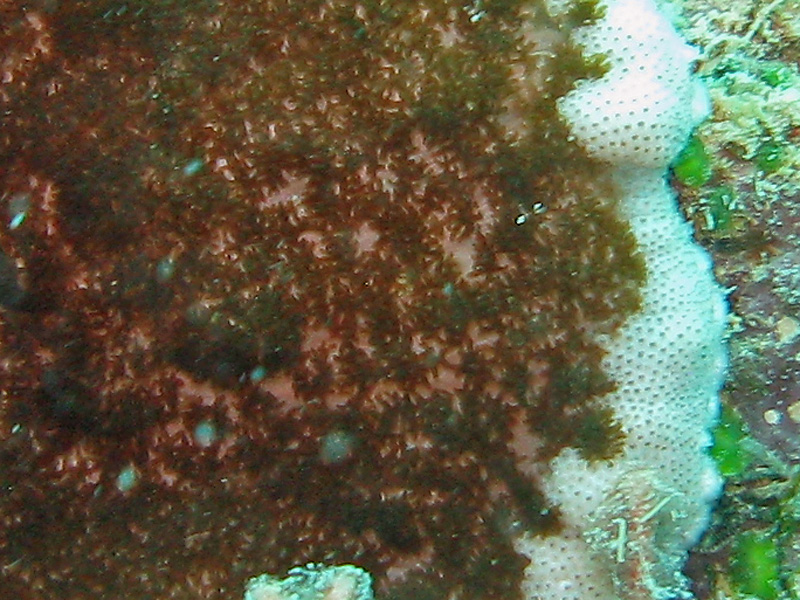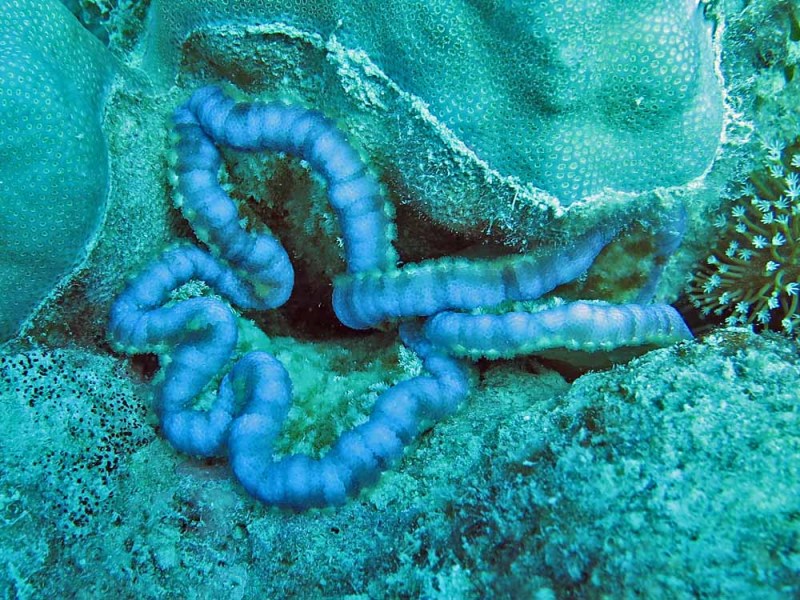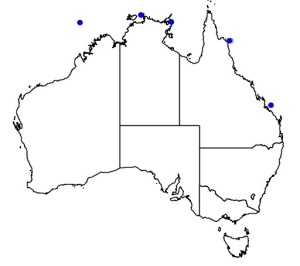�
�
�
���
Cryptodendrum adhaesivum
Adhesive Sea Anemone
Kingdom
Animalia
Phylum
Cnidaria
Class
Hexacorallia
Order
Actiniaria
Family
Thalassianthidae
Genus
Cryptodendrum
Species
Cryptodendrum adhaesivum
Status
unspecified
Colours
Distinguishing features
Short, highly adhesive tentacles of two forms: those in the centre have several branches while those near the edge are single. The different tentacle types are often of different colours, and colours can vary widely between individuals. The animal retracts strongly and quickly when touched.
Size
- Size data has not been obtained.
Synonyms
Distribution
Local abundance
- Lizard Island, Queensland, Australia: Rare at Lizard Island and apparently in Australia
Behaviour
Tha only anemonefish known to associate with this species is Amphiprion clarkiiaccording to Fautin and Randall (1992). That species is either not present or very rare at Lizard Island. The few specimens of Cryptodendrum adhaesivum observed in the area have not been inhabited by any anemonefishes.
Web resources
References
References that assist with identification
- Crowther, A.L. (2013). Character evolution in light of phylogenetic analysis and taxonomic revision of the zooxanthellate sea anemone families Thalassianthidae and Aliciidae. PhD thesis, University of Kansas. LIRS catalog number 90289.
- Fautin, D.G. and G.R. Allen (1992). Field guide to anemonefishes and their host sea anemones Western Australian Museum, Perth, WA.
Other references
- Nedosyko, A.M., J.E. Young, J.W. Edwards and K. Burke da Silva (2014). Searching for a toxic key to unlock the mystery of anemonefish and anemone symbiosis. PLOS One, 9 (5): e98449. LIRS catalog number 1763.











